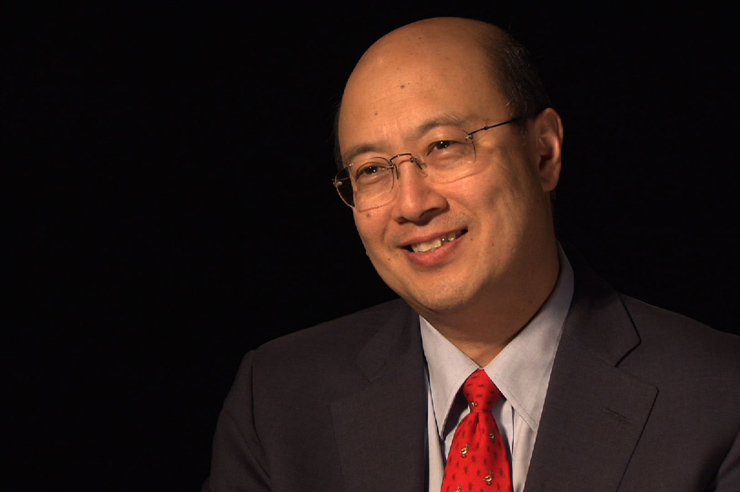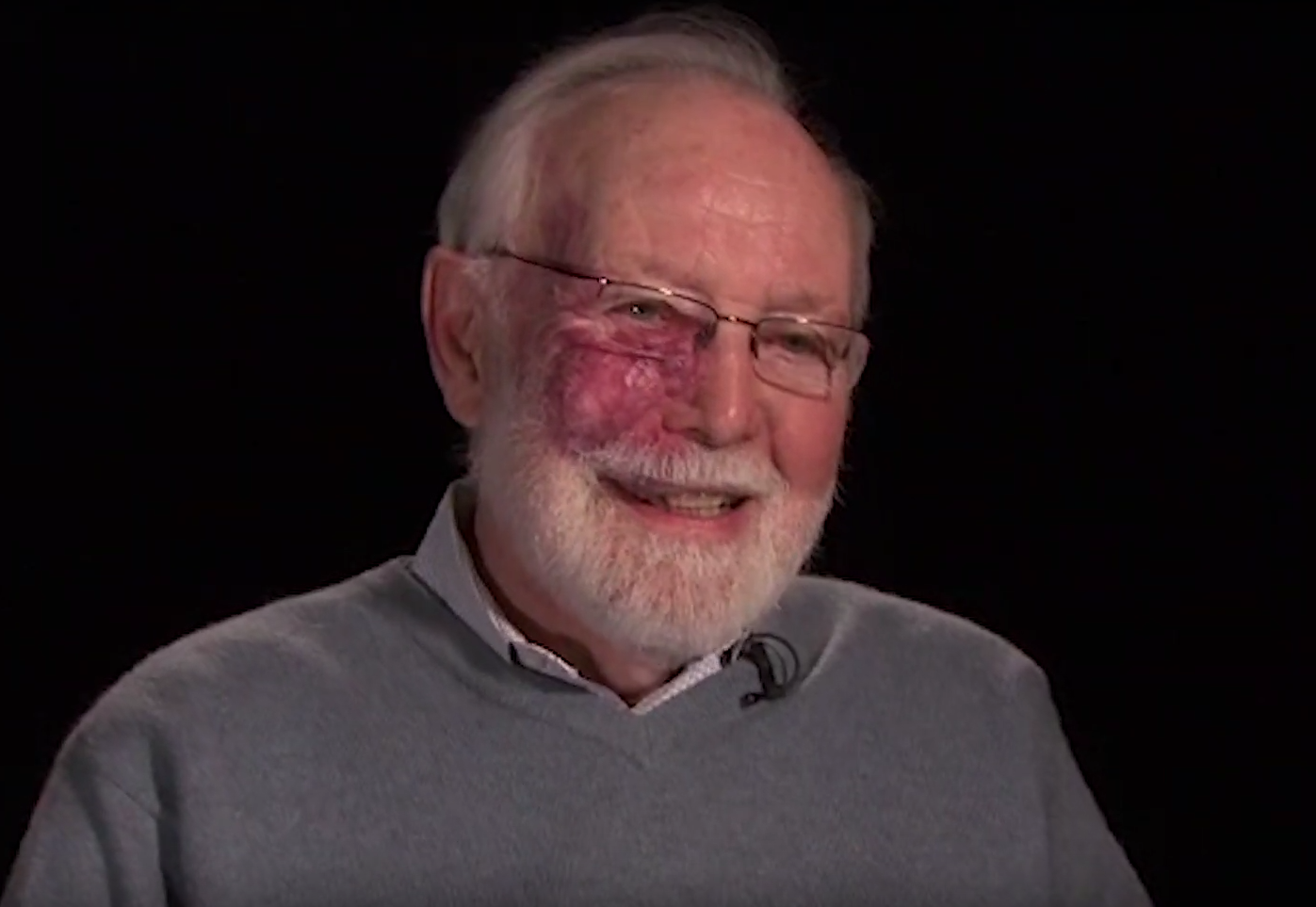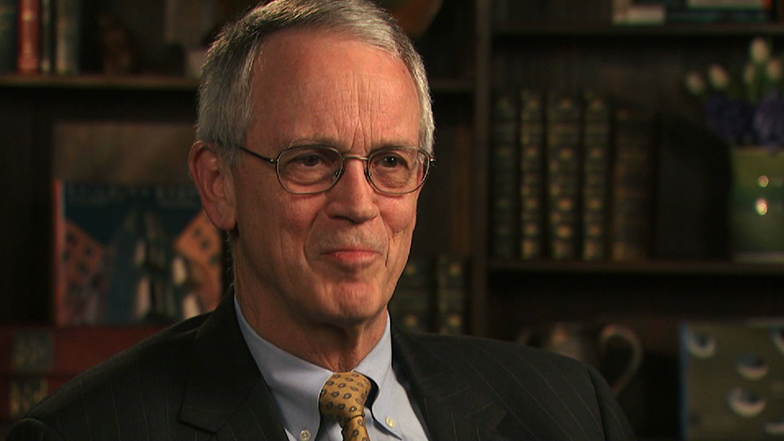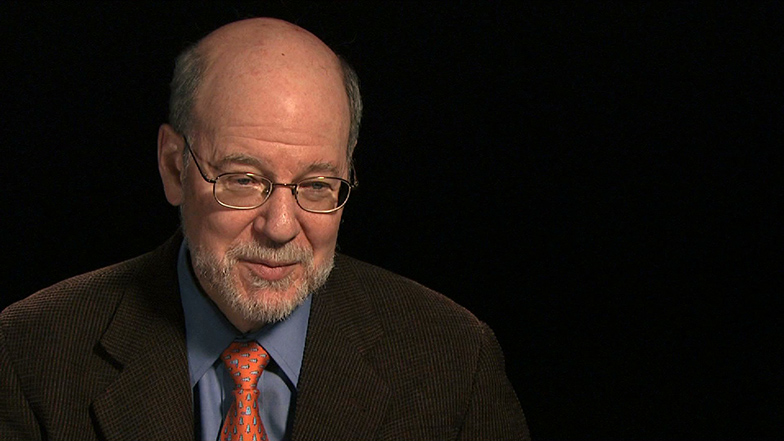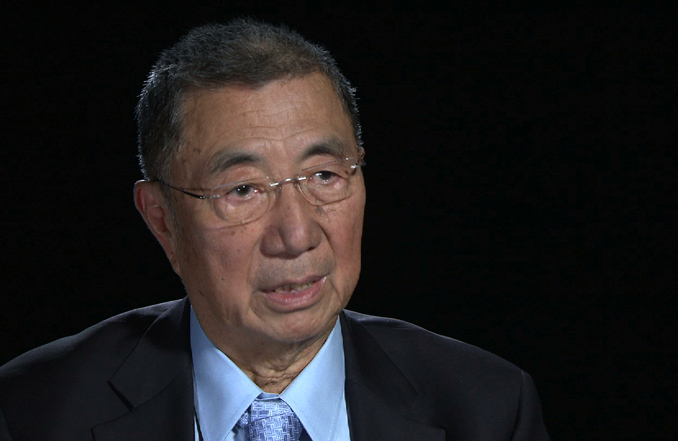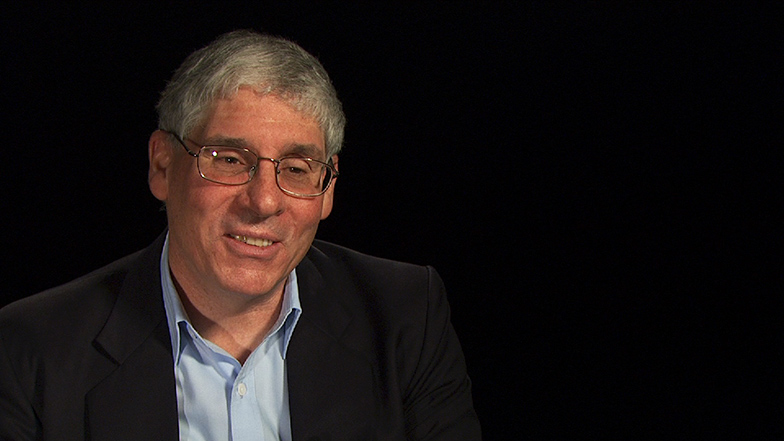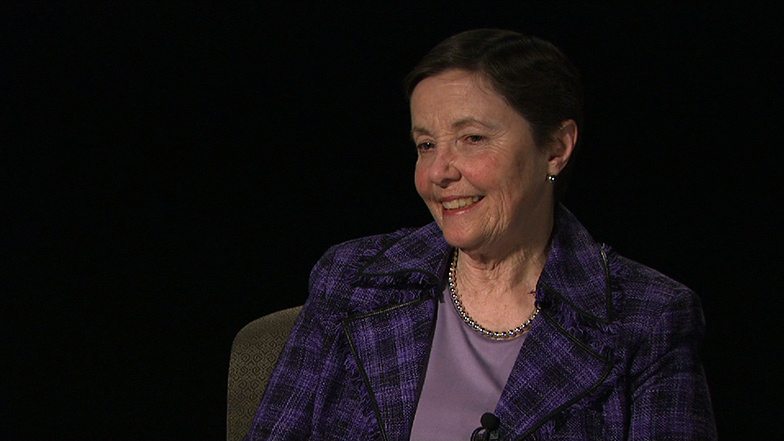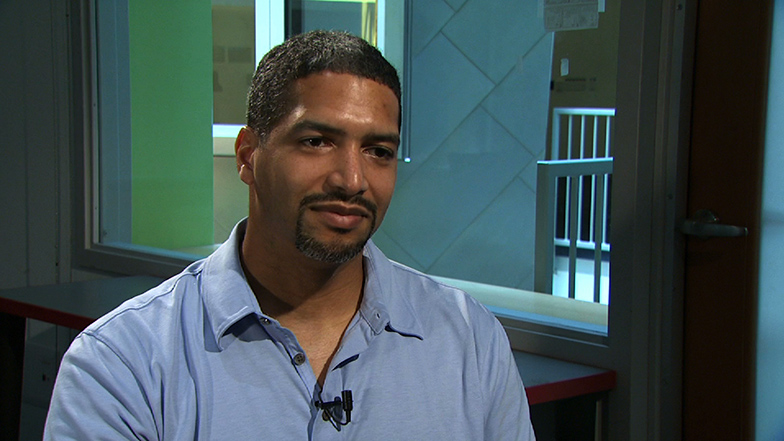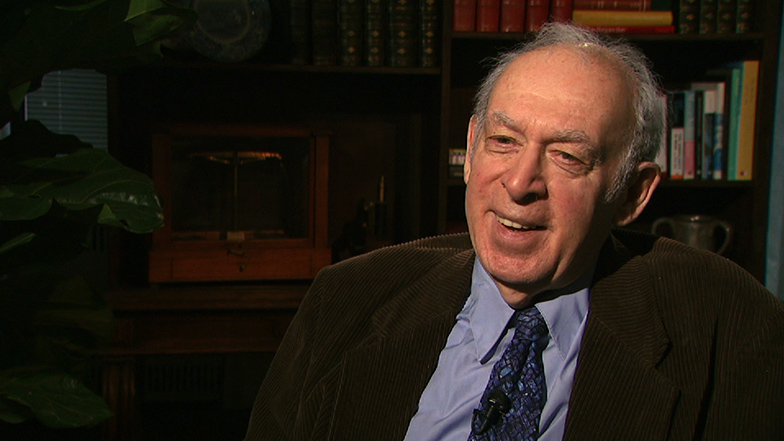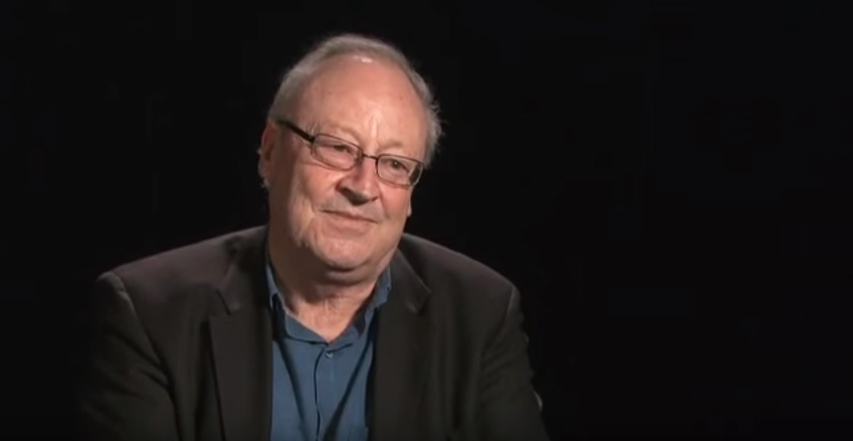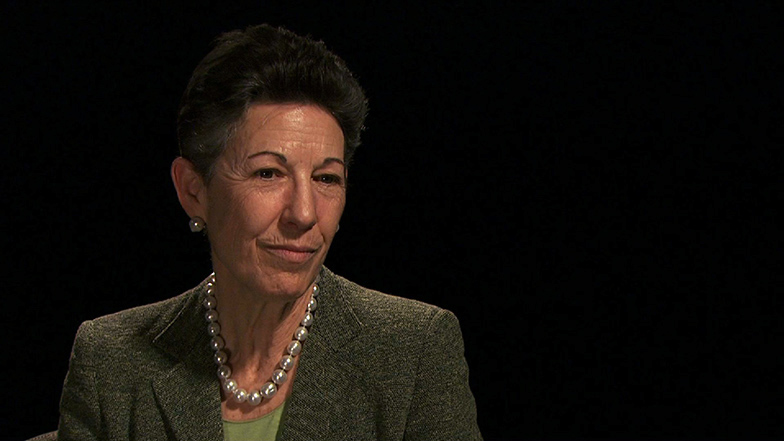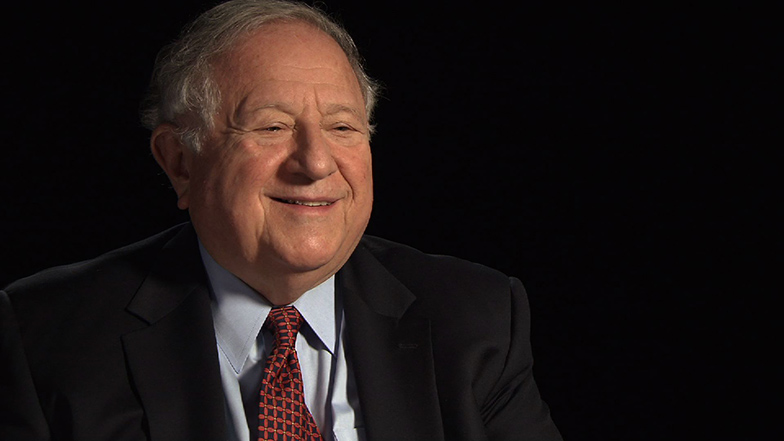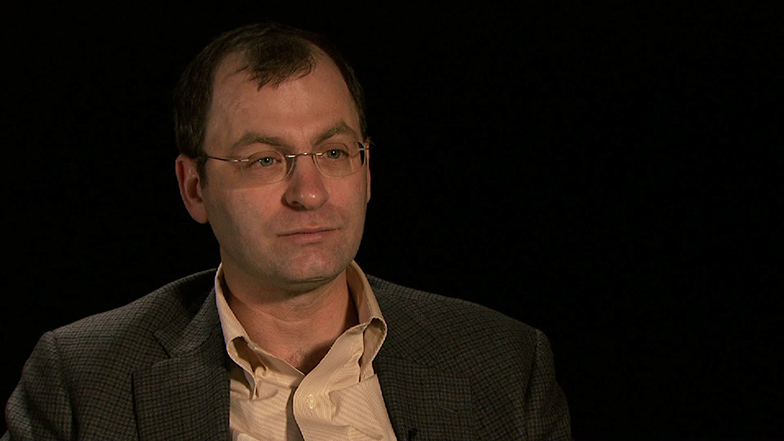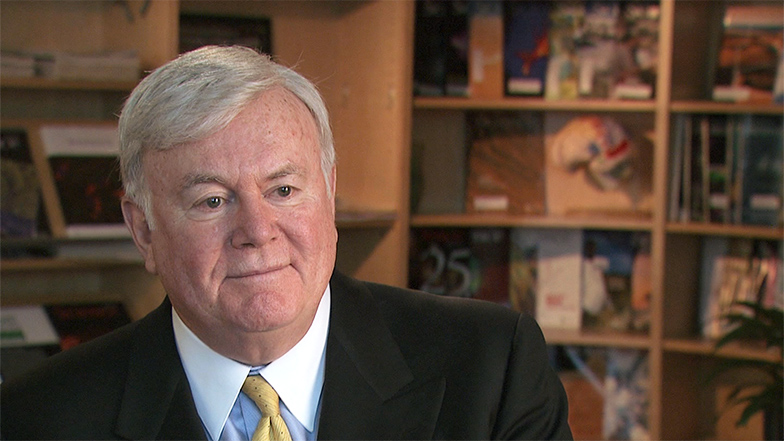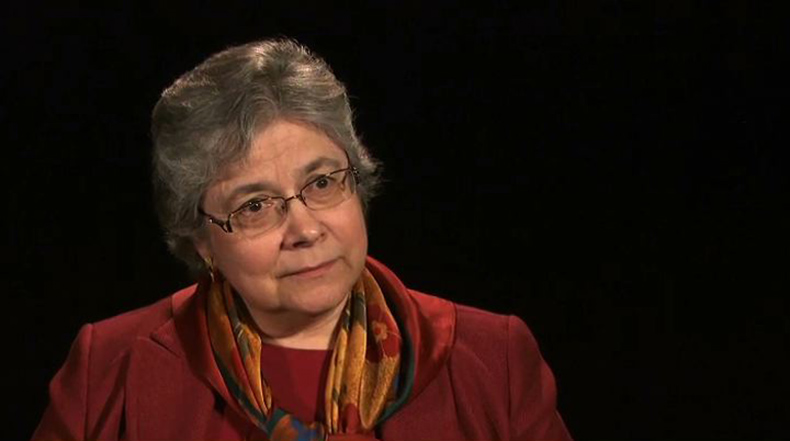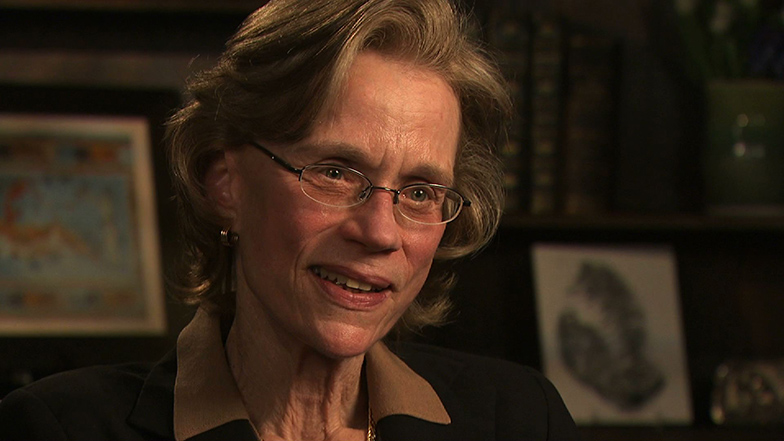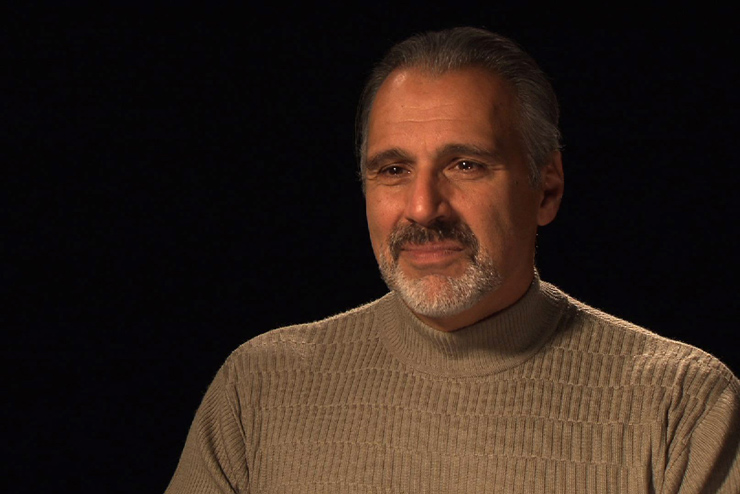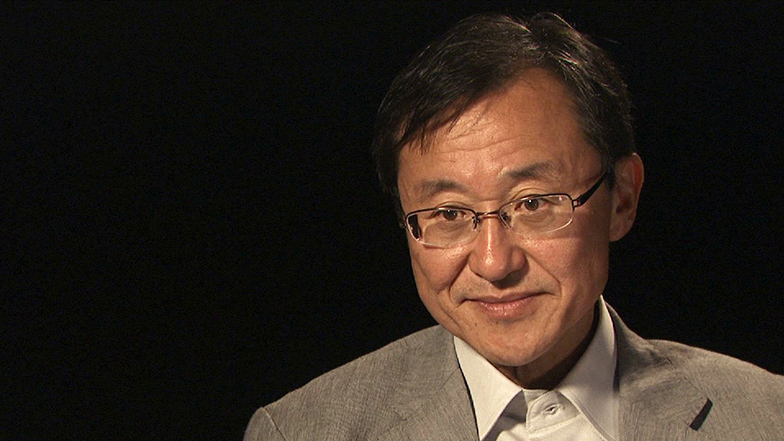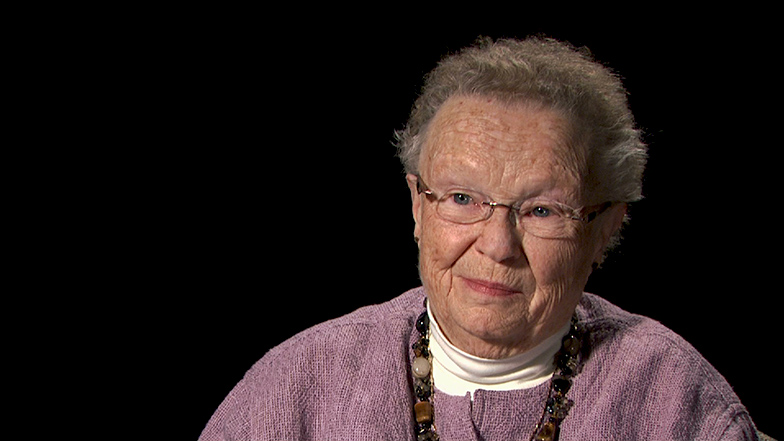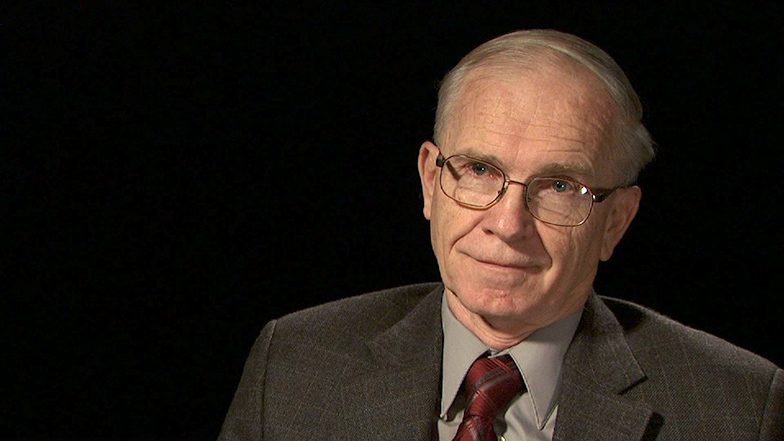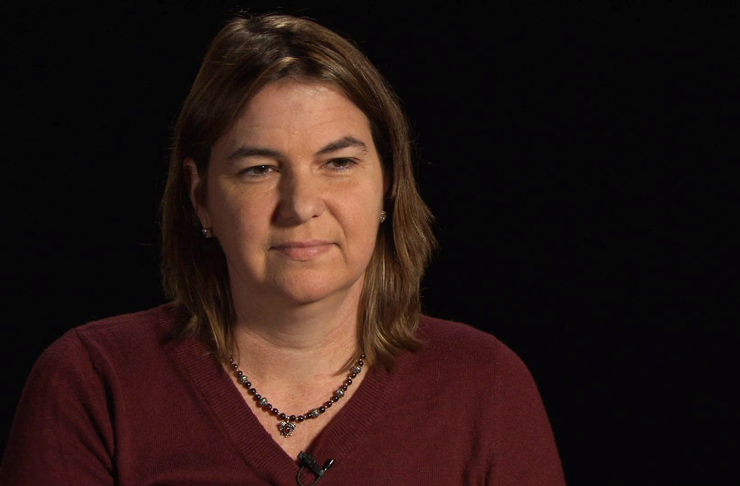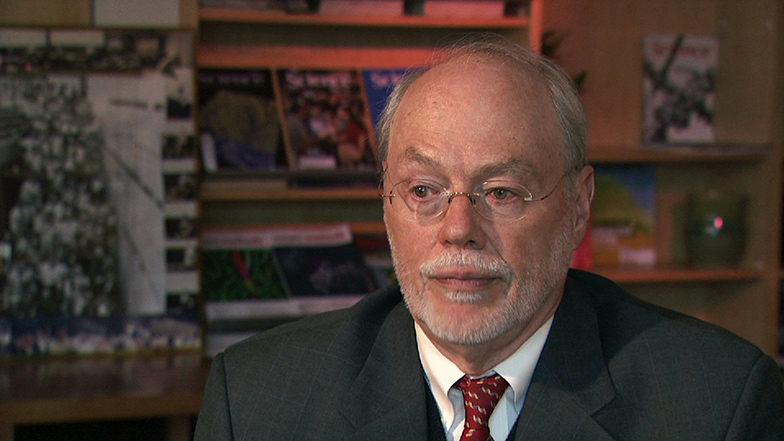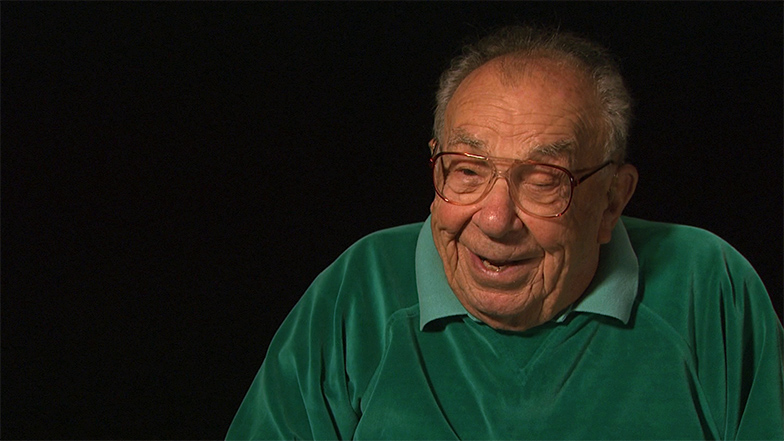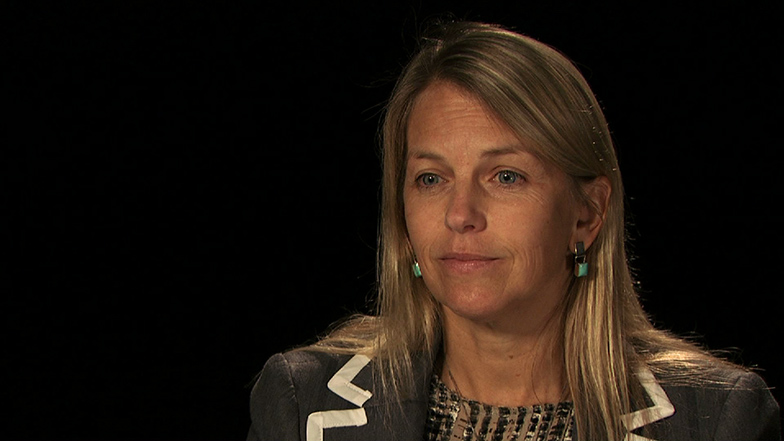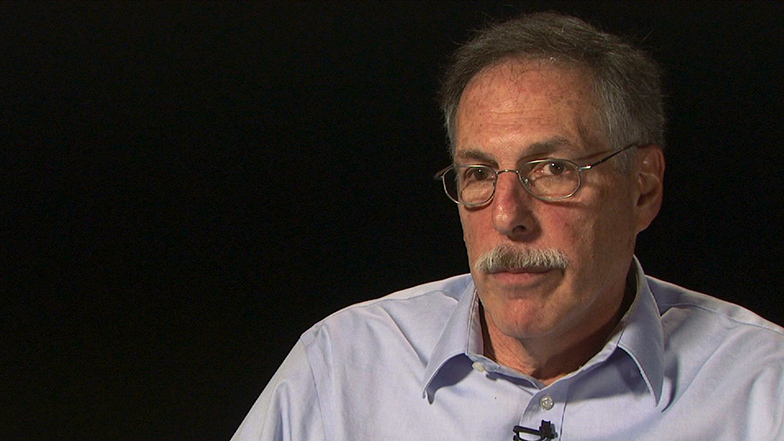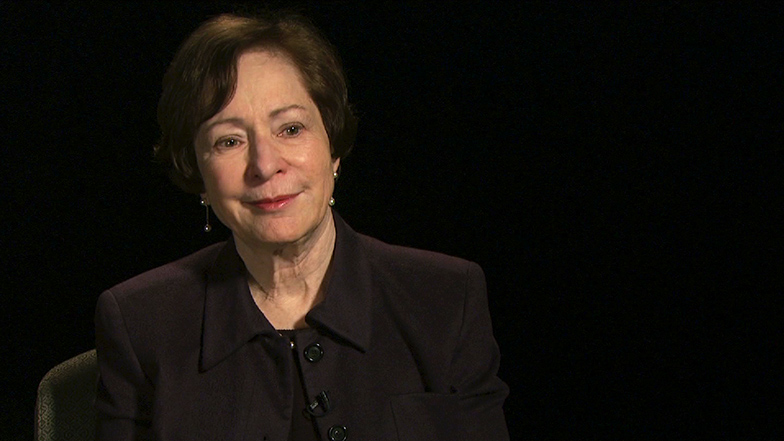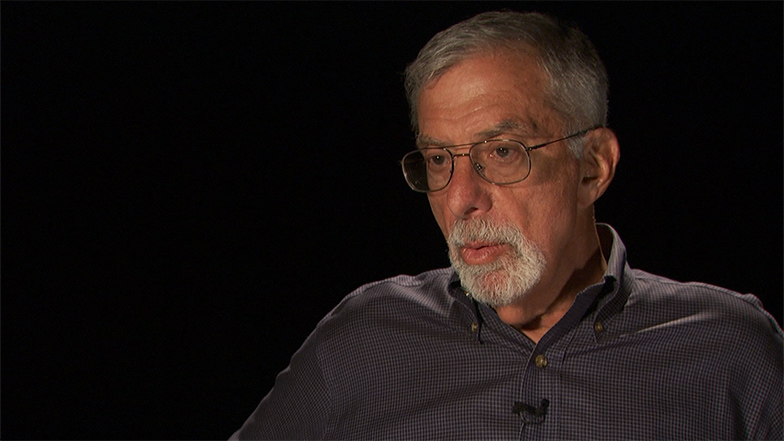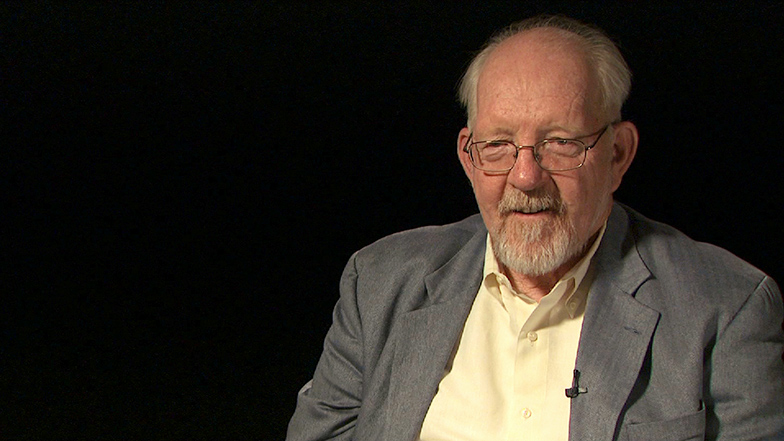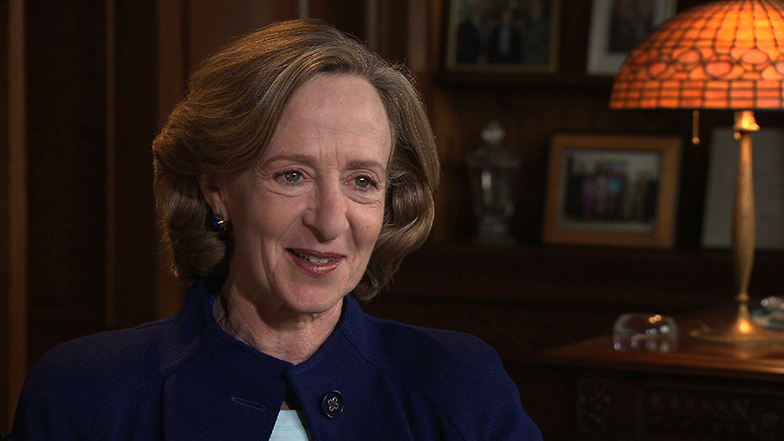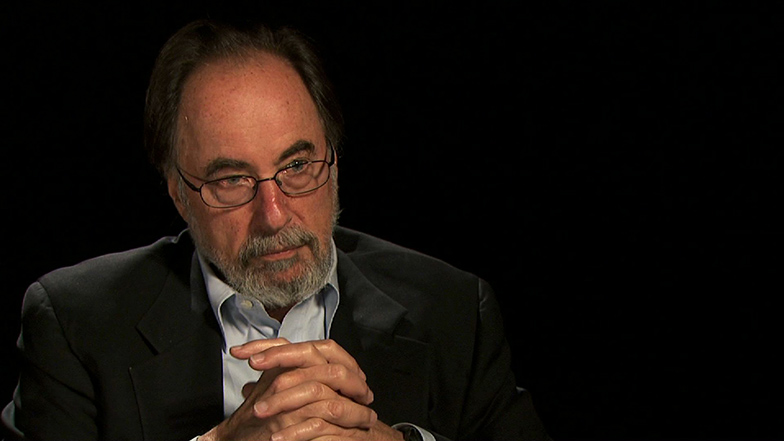Rebecca M. Vest
INTERVIEWER: Today is December 3, 2010. I am Karen Arenson. This interview is part of the MIT 150 Oral History project. We are speaking this morning with Rebecca McCue Vest, a former first lady of MIT, whose husband, Charles M. Vest, was MIT's 15th president from 1990 to 2004. She is an honorary member of the MIT Alumni Association and was awarded the Bronze Beaver, the association's highest honor, in 2004.
Becky, thank you for talking with us this morning. How did you and Chuck meet?
VEST: Well, we met on a blind date. When I was in high school, I was a senior, and I had gone to the university for a weekend with two of my high school friends. And we were staying at one of the sorority houses with the older sister of one of these women, and she fixed me up. So that was it.
INTERVIEWER: Let's back up and talk about your early years. Where were you born and where did you grow up?
VEST: I was born in West Virginia, in Clarksburg, but I was born during the war. I was born in 1942, and my father was overseas so we were living with my grandparents and-- or my mother was, and so I was born. She was from that area. My father was a chemical engineer. He was a lifelong employee of Dupont, and they have a big plant outside of Charleston, West Virginia, which is where I grew up, actually.
INTERVIEWER: Did your father do graduate work to become a chemical engineer? Or had he trained undergraduate?
VEST: No, he just-- undergraduate, and money was a real issue with him at that point in time. His father had lost everything in the Depression, and so he was a scholarship student and did very well and could've gone on, but I think he felt it was important that he start working, and he was able to to get a good job and that was-- I was always sorry he didn't go. After I got old enough to appreciate what it would have done for him, I think it was too bad he wasn't able to go further.
INTERVIEWER: And did you have any question about where you were going to college or was the University of West Virginia where most of your friends went?
VEST: Well, I guess I would say most of my friends ended up at the university, but not all of them. But I think that they sort of-- they ended up at second-rate women's schools. In retrospect, my choice was the right one, I think, but it--
INTERVIEWER: Well, you met Chuck there.
VEST: Right.
INTERVIEWER: How did you and he decide to go to Michigan?
VEST: His father had graduated with his PhD from the University of Michigan, and they talked a lot about Ann Arbor, and he had done his work in the summertime. He taught at the university during the school year, during the academic year, and then went to Ann Arbor for the summer and did his work there. And they spoke very fondly of Ann Arbor, and so I felt like I knew all about it before I even arrived.
INTERVIEWER: And when you arrived, you said, oh!
VEST: Well, winters were a whole lot different then. There was not a real gentle winter in Ann Arbor, but we grew to love it. It was really a wonderful place to live.
INTERVIEWER: Was going to school there for your senior year very different from being in West Virginia?
VEST: Only that-- yes, because there weren't the friends and there wasn't that kind of support, but it was fun. And, of, course football's such a big deal there, and football weekends really play a big role. And they still do, actually. But it has changed somewhat since.
INTERVIEWER: And did you begin to develop a close set of friends from Chuck's classmates or from yours or from--
VEST: Chuck's friends, his classmates basically graduated and moved on. He was one of the few that was chosen to stay and be a member of the Michigan faculty, and so our friends, that group of friends, grew from that point.
INTERVIEWER: From the faculty?
VEST: Right.
INTERVIEWER: Young faculty more than--
VEST: A few from graduate school, but as I say, they moved on.
INTERVIEWER: Did he whiz through grad school?
VEST: Yeah, pretty much. He had some long weekends, and dissertation, and prelims and all these-- I don't know-- things we had to--
INTERVIEWER: And did you have children by then? Or after he became--
VEST: Kemper was born after he-- but just after he became a member of the faculty.
INTERVIEWER: So you had Kemper and then you had John?
VEST: Right.
INTERVIEWER: They're pretty close in age?
VEST: About three years.
INTERVIEWER: Three years?
VEST: Uh-huh.
INTERVIEWER: And you were looking after them, and you began to develop friends--
VEST: Right.
INTERVIEWER: --probably with other parents?
VEST: Right. That was mainly-- our friends came from school and from the community, really.
INTERVIEWER: And by the time you were married, did you know that Chuck was going to follow his father into academia?
VEST: Yes, but I didn't ever dream in my wildest dreams that he would become an administrator. I think that was--
INTERVIEWER: Right, because his father, I guess, really wasn't.
VEST: Right.
INTERVIEWER: I don't know if he had a period where he may have been along the way.
VEST: I don't think so. He avoided things like that, and Chuck basically had to until a good friend became administrator.
INTERVIEWER: Was that Jim Duderstadt?
VEST: Oh, yeah. Jim got us into it. Well, I think they saw some things that just really-- they really disliked, and the only way to change it was to--
INTERVIEWER: Do something about it.
VEST: Right.
INTERVIEWER: The engineering dean job must have been a pretty big one.
VEST: Right.
INTERVIEWER: A big engineering. school. And then the provost job.
VEST: Yeah.
INTERVIEWER: Did you and Chuck at any point stop and say is this the path we want to be on?
VEST: Not really, because it was just so exciting. The engineering part of it, there was a move. The engineering campus moved from the main campus to the engineer-- there was an engineering campus, and buildings were built, and funds were raised, and we got into that really big time.
INTERVIEWER: So you began to be pulled into the entertaining and the--
VEST: Right.
INTERVIEWER: --dinners and--
VEST: Yes.
INTERVIEWER: --donors and so forth.
VEST: Right.
INTERVIEWER: How did you like that?
VEST: Well, I really liked it. We had a wonderful support staff for that and so I never felt that it was my total responsibility. After we got involved at MIT, and Chuck with president, and I realized what other presidents' wives were dealing with, I realized how fortunate I had been in the support that we'd had.
INTERVIEWER: At Michigan?
VEST: At Michigan and then at MIT. So it was a real eye opener to see, especially the state schools, the state universities, where their budgets are politically controlled, and there was a-- that's a real difficult situation for a lot of the women, I think. INTERVIEWER: How big a surprise was that call from MIT asking if he would talk to them about the presidency?
VEST: It was a huge surprise, to me anyway. I think to Chuck as well.
INTERVIEWER: And I think he initially said, gee, I haven't been provost very long.
VEST: Yeah.
INTERVIEWER: No thanks. One your first projects was probably the renovation of the President's House?
VEST: Right.
INTERVIEWER: You arrived and it wasn't ready?
VEST: No, it wasn't. We lived in the-- oh, what's the hotel on Mass. Ave. and-- I can't remember.
INTERVIEWER: Some place down the road.
VEST: Right.
INTERVIEWER: But that gave you a chance to get involved in the decoration?
VEST: Yes, yes.
INTERVIEWER: So I understand you sort of had some clear ideas about how things should look and what they might do with them, that you had this good eye. What did you-- what was your vision and what did you try to do when you were decorating the house?
VEST: I think I have a good eye for color, and with the help of-- I don't feel confident enough to do it and say this is the way it's going to be. I had to have--
INTERVIEWER: But they had professional decorators?
VEST: Oh, yeah, I had a wonderful decorator.
INTERVIEWER: But you had a sense of color. And lightening it up?
VEST: Yes.
INTERVIEWER: Was that one of your goals?
VEST: That was definitely a goal. I felt that if we were going to live there, it couldn't be dark. It had to be bright. But I wanted to keep the style of everything.
INTERVIEWER: And you also, I think, had an idea to bring collections in. I don't know whether they were yours or MIT's or both?
VEST: Well, I worked with Warren Seamans. Was that his name?
INTERVIEWER: Uh-huh.
VEST: In the museum and tried to bring in things that worked but that had some meaning to the-- especially Mrs. McCormick's things, and I felt that was important. I just thought, you know, locked up in the museum where nobody ever saw them, and they were so beautiful.
INTERVIEWER: Do you remember any in particular? Were there birds?
VEST: There were birds.
INTERVIEWER: Porcelain?
VEST: Yes, they were porcelain. They were just beautiful.
INTERVIEWER: And they had come from Mrs. McCormick?
VEST: They were her-- she just had all these collections of everything. You just can't believe what there is. And I would go over and look at things and then ask Warren to get them over to the President's House, and then we--
INTERVIEWER: Could show them off?
VEST: Right. And I tried to find out as much as I could about them, but these birds-- I don't really know the history, but she had four homes, and so these were collections that she had had.
INTERVIEWER: And left to MIT?
VEST: And she left them all to MIT. I mean, she couldn't have left all of it because--
INTERVIEWER: Or some of them.
VEST: But she had these magnificent homes in four different places, and these were just-- but I enjoyed just changing things around. Some of the birds were seasonal and definitely holiday, and so I thought, well, these have to come out for the holidays. But it meant-- you know, it was a lot of work.
INTERVIEWER: But interesting.
VEST: Right.
INTERVIEWER: And fun.
VEST: And there were plenty of places to tuck these away when they were not in use so I got everything.
INTERVIEWER: You also had some thoughts about the gardens.
VEST: Right.
INTERVIEWER: And got involved in those. Tell us about that.
VEST: Well, I mean, there were these wonderful patches in the backyard with a place for flowers and a wonderful person--
INTERVIEWER: Bill Flannery?
VEST: Bill Flannery, to make them grow, or to help them grow, and together, we just had a wonderful time doing that. Gardening had always been a passion, and I had done it in Michigan, but never with the help that I had here.
INTERVIEWER: And the Daffodil Days? That was another--
VEST: Oh, that was-- yeah, that was a Women's League thing that I enjoyed doing.
INTERVIEWER: And you went to the cold storage locker--
VEST: Well, yeah, there was--
INTERVIEWER: -- to bundle daffodils, I think?
VEST: Right. I'm not sure where in-- whether it was in Cambridge. I don't think it was even in Cambridge. It was in-- oh, I can't remember, but one of the towns close by.
INTERVIEWER: And you had to bundle up to--
VEST: We had to-- now, as I remember, there were people who took orders, and then from those orders, we had to bundle the flowers so that they could be delivered. And we got the flowers. They were picked up from the flower market in huge buckets of daffodils, and then we bundled them according to the orders that we had taken, and it was a--
INTERVIEWER: And then delivered them.
VEST: Right.
INTERVIEWER: And this was all to raise money to fight cancer?
VEST: I think it was AIDS, if I'm not--
INTERVIEWER: AIDS? Huh!
VEST: --mistaken.
INTERVIEWER: But the money all went to a charity?
VEST: Yes, it was charity.
INTERVIEWER: And you helped deliver some of the bundles, too?
VEST: Oh, yeah. I actually came back even after we'd moved away and went with a friend to deliver them, but that was fun. It was-- it wasn't a happy cause, but it was--
INTERVIEWER: Doing something about it?
VEST: Yeah.
INTERVIEWER: You also were a server at the World AIDS Day activities when there was a big chocolate buffet, I think, in the lobby of Building 10. What was that like?
VEST: Well, that was a lot of fun. It was fun just to watch people. I love chocolate, but I tried not to participate too much in that as far as eating it. But I just thought that was wonderful. We had somebody in the Women's League that was very interested in it, and it was her idea, and I certainly supported it.
INTERVIEWER: And you also served on a number of other boards and advisory groups for Endicott House and the Medical Consumers' Advisory Council and Technology Children's Center and the Community Service Fund. Do you recall-- that's a lot of different groups.
VEST: Right, it is. The Medical Consumers' Advisory Group I was a part of, and I really-- it was a good group and I thought it was important. Until I had my cardiac arrest, I really wasn't in the infirmary very often, and in fact, I don't like going to the infirmary. But it wasn't anything that they we're doing that was-- I just don't care to be a visitor there very often. But I thought it was a good-- a worthwhile thing to support as far as my position on campus, and I think they do a good service.
INTERVIEWER: You and Chuck sent out very interesting holiday cards during his presidency, and I believe you designed them.
VEST: I helped.
INTERVIEWER: What was the idea? What did you do?
VEST: Well, we started out finding either artwork or something that struck us as being unusual or artistic on campus, and then I would just try to think of how that was-- could be incorporated into a holiday card. I used the archives for snow scenes or anything like that.
INTERVIEWER: So you'd spend some hours looking through the books?
VEST: And if I saw something that was the least bit holiday-ish, you started with that, and then Chuck weighed in on what he thought, but I just found that really fun.
INTERVIEWER: Had you done anything like that before you came to Cambridge? Did you design your own when you were in Michigan?
VEST: Not really. I mean, we had started when Chuck was--
INTERVIEWER: Provost?
VEST: Well, I guess when he was dean of engineering, and that was usually something that involved the engineering school per se so I knew there were possibilities. Once you receive a card from another university, then you've got that idea. So I ended up with a huge collection of ideas for holiday cards.
INTERVIEWER: Do you design cards still?
VEST: No, I don't.
INTERVIEWER: You got a new dog when you were living in the President's House. Did you walk him on campus and was he a good conversation starter? Did everyone love him?
VEST: Oh, yeah. That was Scout, I believe. We actually came with a dog who was very old, and she died soon after we moved here. The President's House was too big for her, and Scout was quite a part of the MIT President's House group.
INTERVIEWER: What kind of dog?
VEST: She was a bearded collie and very friendly dog, and she needed to be walked a whole lot. I think she got a lot of treats from the Senior House students, some of which she probably should not have had. In retrospect, I think we probably did the dog a great disservice by letting her outside.
INTERVIEWER: She got a lot of loving?
VEST: Oh, she did. She was a happy dog when she was out there, and I think they were nice to her most of the time. I think sometimes they might have been a little on the mean side, too, but I wasn't out there all the time so I don't know.
INTERVIEWER: This is the yard between the President's House and Senior House?
VEST: Right. And it's enclosed by a wall that is-- but they managed to sneak things over the top of it.
INTERVIEWER: You mentioned your cardiac arrest.
VEST: Right.
INTERVIEWER: Which you probably don't remember much of?
VEST: No, I don't. I don't. I was sound asleep.
INTERVIEWER: Oh, my.
VEST: It was in the middle of the night.
INTERVIEWER: And the campus police helped save you?
VEST: I guess so. I think the fact I was able to get help immediately was--
INTERVIEWER: And you and Chuck had a reception, I believe, with the people who--
VEST: Right, we did.
INTERVIEWER: --came?
VEST: We had everybody-- see, what I don't remember is the timing. I don't remember the date or anything. But it was after I had basically recovered, and since I don't really know what it was like when I was having it, I can't really compare. But they saved my life.
INTERVIEWER: You're the walking miracle.
VEST: What was good was that Chuck was in town because if he hadn't been in town--
INTERVIEWER: Wouldn't be sitting here.
VEST: No, I don't think so.
INTERVIEWER: Chuck did many things in his presidency. He started new centers and built new buildings and started OpenCourseWare and opened the way for the women on the faculty to be treated more fairly. He raised a lot of money. Did you have any favorites among all these things he did?
VEST: Well, I certainly enjoyed the travel we had and the contact with the alumni groups across the country, and I still see some of those people when we're back on campus. But so many of them don't come back to campus so you have to reach out to them.
INTERVIEWER: And you don't live on campus anymore.
VEST: Right.
INTERVIEWER: You're off in Virginia. You mentioned the travel. Did you do a lot of it with him? He did a lot, I think.
VEST: I went whenever I was involved. That was pretty much the-- and if he was doing-- he sometimes did multiple visits, and so he'd be involved-- I'd be involved in some and not in others. But if it made sense, I went whenever he did.
INTERVIEWER: Did you end up being a sounding board for Chuck during his presidency? I mean, did he come home and say, this is on my mind?
VEST: Not as much as you might think. But yes, I was. I was.
INTERVIEWER: He could run things past you?
VEST: Right. But I think he-- his team was as good a sounding board as I think--
INTERVIEWER: He could bounce things--
VEST: Right.
INTERVIEWER: --off of the people around him?
VEST: Right.
INTERVIEWER: Was it a very full-time occupation for you in those years?
VEST: I felt like it was.
INTERVIEWER: Yeah.
VEST: But, you know, it didn't have to be if I didn't want it to be.
INTERVIEWER: Uh-huh.
VEST: I had that freedom.
INTERVIEWER: How important was having a weekend house in New Hampshire. I think somebody said, gee, it's a good idea to have a place to get away.
VEST: Really important.
INTERVIEWER: Did you get away much?
VEST: We did. We did, and it was good having it so close because you could go-- you know, you could go for a weekend and feel like you'd gone someplace but you hadn't spent five hours in the car, which is-- you know, that's the one thing about Michigan. To get to some place as nice as we were able to get to, you have to drive at least four if not five hours, and your weekend is-- that's 10 hours out of the weekend. It's hardly worth going.
INTERVIEWER: You're up at Lake Winnipesaukee?
VEST: Right.
INTERVIEWER: Do you still go up there at all?
VEST: We do, but not very much. I wish we had some place closer to Washington.
INTERVIEWER: Do the children use it at all?
VEST: You know, they don't.
INTERVIEWER: Neither one is close right now.
VEST: No, no.
INTERVIEWER: In 1998, the Alumni Association made you an honorary member. Were you surprised?
VEST: I was.
INTERVIEWER: And then you had the honor of the Bronze Beaver, which was another surprise?
VEST: Right.
INTERVIEWER: So this is MIT saying, hey, we really care?
VEST: Right.
INTERVIEWER: Another honor was the naming of the President's House garden after you?
VEST: Well, that was my passion really, and that was fun.
INTERVIEWER: Has life been calmer since Chuck stepped down as president? He also did a little-- a brief period of teaching or a sabbatical?
VEST: Right, right. He was here for a while, and this is the first time we've not lived in the university community. And as electric as Washington can be, if you're not really involved in it, you don't get the-- you don't feel the electricity. That's what I miss the most, I think, is--
INTERVIEWER: Does he work any less or travel any less?
VEST: No. He has less support.
INTERVIEWER: Right. It's a much smaller organization at the National Academy of Engineering.
VEST: Right. And I say that because maybe I'm not involved. I don't see the support. And he has support. I don't mean that he doesn't, but it doesn't seem to me that he has the same depth.
INTERVIEWER: At some point, there was-- I guess after Chuck stepped down, there was a portrait of you?
VEST: Yeah.
INTERVIEWER: Did you have to pose for the painting and did you like the result?
VEST: I do. I like them very much. I posed, but not-- he took photographs, as I recall, and painted basically from those, but I--
INTERVIEWER: Which may be hanging up at the Women's League office?
VEST: Ah, yes. It's in the Women's League.
INTERVIEWER: Or the Emma Maclaurin-- I don't know exactly which room.
VEST: See, I forget the names of the rooms, but it's the-- is it the Maclaurin Room?
INTERVIEWER: Could be the Maclaurin Room. There are one or two of them.
VEST: Right. And all of the wives' portraits are there so--
INTERVIEWER: It's a nice gallery.
VEST: Yeah, it is.
INTERVIEWER: Do you ever get to visit it?
VEST: Oh, yeah I go over. I have to go see Sis. Sis de Bordenave is the executive secretary of the group, and so she's always there.
INTERVIEWER: Well, thank you very much. Thank you for coming back and talking with us and recalling your years here.
VEST: Well, I'm happy to do it, and I'll be anxious to see this when it's all--
INTERVIEWER: There.
VEST: Yeah.
INTERVIEWER: Thank you.
VEST: Thank You.
